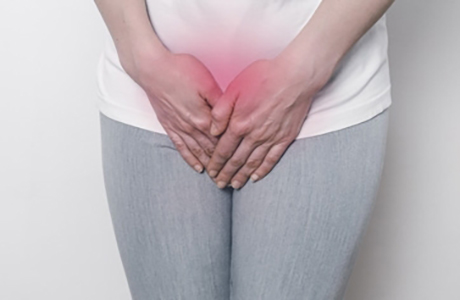
In women, the menopause period is accompanied by some changes in the genital area. Especially in recent years, vaginal laser treatments have become widespread and have also found a place to eliminate complaints during menopause.
Complaints such as itching, burning, stinging, vaginal dryness in the genital area, burning during urination, frequent urination, pain during intercourse, and pain that occur with the decrease in estrogen levels during menopause can be treated with vaginal lasers.
Laser treatment of menopausal complaints has become a new option, especially for patients who cannot use estrogen or do not want to use it due to possible risks.
Genitourinary Syndrome of Menopause (GSM) is a new concept that includes symptoms that occur as a result of decreases in estrogen and other sex hormones and changes in the vulva (external genital area),the entire vaginal area, urethra (urinary tract),and urinary bladder. It is formerly known as “vulvovaginal atrophy” (VVA),“urogenital atrophy”, “atrophic vaginitis”. Women in the menopausal period sometimes experience all of these complaints, and sometimes some of them.
Epitheliums of vaginal canal and urinary canal develop from the same embryologically “estrogen-dependent” tissue origin. Therefore, the decrease in estrogen hormone during menopause affects both the genital area and the urinary system. In the genitourinary syndrome of menopause (GSM),which is the problem of 50% of women in the menopause period, the vulva, vagina, urinary canal, and urinary bladder are the most affected organs. This problem can be diagnosed quickly with characteristic complaints, physical examination, and laboratory tests.
On gynecologic examination in menopause, the vagina is pale, shiny, dry, and sensitive. Intra-vaginal mucosal folds (rugae structures) have decreased. Vaginal PH is usually above 5. Estrogen levels in the blood are not diagnostic.
The complaints seen in approximately half of the menopausal women are summarized in the table below. Different complaints on genital, sexual, urinary, and quality of life may develop.
Genital complaints
Sexual complaints
Urinary complaints
Impairment of quality of life
In menopause, the first step in treating vaginal problems is using non-hormonal lubricant gels and the continuation of sexual intercourse. Local estrogen treatments given as vaginal suppositories and creams are very effective and well-tolerated in patients with moderate and severe pain and burning complaints, especially in the genital area, who have pain problems during sexual intercourse, and who have complaints about holding or urinating. In this way, the vaginal epithelium thickens, the secretions increase, the vaginal flora improves, and the vaginal PH decreases. Vaginal dryness complaints and urination problems are also reduced.
Some patients do not want to use vaginal estrogen treatments because of their reservations. On the other hand, estrogen therapy cannot be given to patients who have received breast cancer treatment or are under follow-up due to suspicious findings in the breast. In these cases, fractional laser treatments may be a very good option. In these patients, laser and PRP can also be combined. The aim is to increase the synthesis of collagen connective tissue and provide lubrication.
Preparing the vaginal mucosa with local estrogen treatments for at least one month and applying vaginal laser or radiofrequency (RF) treatments later would be a more appropriate approach for those who have no problem with the use of estrogen and have complaints related menopause.
The amount of energy used in vaginal lasers during menopause is lower than in younger patients. Keeping the applied energy lower is due to the decrease in the mucosa thickness and the amount of intra-tissue water. Laser treatments can be applied to both the vagina and the external genital area in the same session. The entire treatment time is an average of 10 minutes.
In patients whose genitourinary syndrome of menopause (GSM) symptoms continue to cause severe discomfort despite estrogen therapy, occasional vaginal laser and PRP sessions with estrogen therapy can be quite relaxing. In order to eliminate the complaints of vaginal dryness and skin thinning, especially for these patients, hyaluronic acid injections for regeneration, SVF (Stromal Vascular Fracture) injections, and some mesotherapy products can be preferred.
In patients with menopausal complaints, laser treatments can be applied both inside and outside the vagina. Thus, urinary incontinence and problems of the vagina and external genitalia can be solved simultaneously. The vaginal laser can also give very successful results in patients who have previously been diagnosed with "interstitial cystitis".
The vaginal laser treatment takes 3-4 minutes, and the vulvar laser (laser applied outside the vagina) takes 2-3 minutes. After the numbing creams are applied, the procedure can be easily performed. In patients with a very low pain threshold, laser treatments can be performed under slight sedation anesthesia. In the same session, regenerative hyaluronic acid filler or PRP injections can also be applied into the vagina.
Vaginal laser treatments are quite safe. It has no reported risks or major complications.
Vaginal laser fees for menopause complaints vary depending on the size of the procedure, the application area, and the number of sessions. Our treatments are being performed in our Istanbul and Ankara clinics in Turkey.
You can text to our WhatsApp line +90 (0530) 763 34 00 to get information about laser treatment for the elimination of menopausal complaints or to make an appointment for our Istanbul / Ankara clinics.